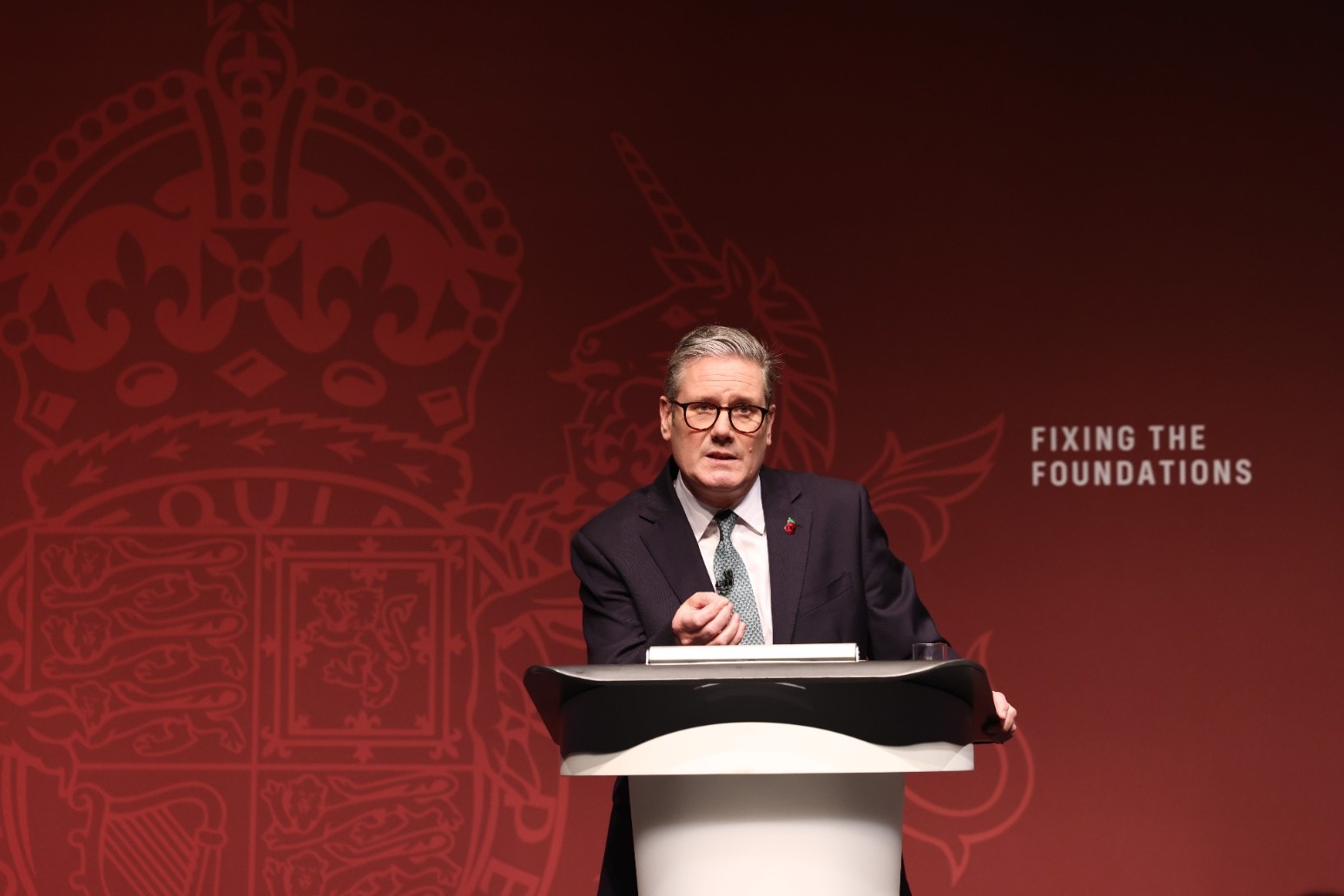-
 play_arrow
play_arrow
Kl 1 Radio Local radio for west Norfolk
-
 play_arrow
play_arrow
KL DISCO KL Disco Playing Disco Music from the 70's onwards.24/7
-
 play_arrow
play_arrow
KL COUNTRY KL COUNTRY Playing New and Classic Country Music 24/7
-
 play_arrow
play_arrow
KL ROX KL ROX The best of New and Classic Rock.24/7
-
 play_arrow
play_arrow
KL SUMMER Summer Vibes 24/7 from KL1 Radio across West Norfolk
-
 play_arrow
play_arrow
KL CLASSICAL Your Symphony Starts Here
-
 play_arrow
play_arrow
KL CHILL Just Chill!
-
 play_arrow
play_arrow
KL POP The Best POP Hits all day Long!
-
 play_arrow
play_arrow
KL XTRA KL XTRA
music_note

The £2 bus fare cap will be replaced by a new £3 cap until the end of 2025 at this week’s Budget, the Prime Minister has confirmed.
In a speech in Birmingham, Sir Keir Starmer said he knows “how much this matters”, particularly to people who live in rural communities. The increase will be announced at Chancellor Rachel Reeves’ first Budget on Wednesday, as the Government tries to bridge what it has called a £22 billion “black hole” in the public finances. Sir Keir told the audience: “On the £2 bus fare, first thing to say is the Tories only funded that until the end of 2024 and therefore that is the end of the funding in relation to a £2 capped fare. “I do know how much this matters, particularly in rural communities where there’s heavy reliance on buses. “And that’s why I’m able to say to you this morning that in the Budget we will announce there will be a £3 cap on bus fares to the end of 2025 because I know how important it is.” Single bus fares in England have been capped at £2 outside London, where they are £1.75 per journey, for most routes, since January 2023 When it introduced the policy, the Conservative government said routes with some of the biggest per-journey savings were between Leeds and Scarborough (£13), Lancaster and Kendall (£12.50), and Plymouth and Exeter (£9.20). A Government source told the PA news agency that maintaining a cap on bus fares was “hard fought for in the Budget process” and is largely aimed at helping passengers in rural areas. The source added that analysis commissioned by the Department for Transport found the £2 cap was “not financially sustainable for the taxpayer” and “offered poor value for money”. Silviya Barrett, director of policy and research at pressure group Campaign for Better Transport, welcomed the Government not scrapping the cap completely, but described the change as “a significant increase that could be costly to many”. She said: “The scheme’s success has proven that by making public transport more affordable, more people will use it, and we strongly urge the Government to put a plan in place to keep fares low for years to come. “It is vital that the Government now carries out a full review of what other discount fares could replace the cap in the long-term to avoid any further rises.” In the same speech on Monday, Sir Keir also said that the Chancellor will announce £240 million in funding for local services to help get people back to work, when she delivers her fiscal statement in two days’ time. The Prime Minister also defended the tax rises expected on Wednesday. He said “better days are ahead” and that “tax rises will prevent austerity and rebuild public services”. He said that “the time is long overdue for politicians in this country to level with you honestly about the trade-offs this country faces, to stop insulting your intelligence with the chicanery of easy answers. “Working people know that hard choices are necessary. They lived through the Liz Truss episode. They lived through the cost-of-living crisis. “So they know that the things they want from us – protecting their living standards, building our nation, fixing our public services – they know that this can only be achieved alongside economic stability. “There are no short cuts.” Ministers have been facing repeated questions about the Government’s definition of “working people”, after Labour’s election manifesto pledged not to increase taxes on working people – explicitly ruling out a rise in VAT, national insurance and income tax. They have come under pressure to spell out precisely who would and would not fall under this definition, given the tax rises expected to be announced this week. Earlier on Monday, Cabinet minister Pat McFadden had suggested that “income levels and job descriptions is not the right way to look at” whether or not somebody is classed as a working person. Asked on the BBC’s Today programme what people who are not working people are called, he said: “When we talked about working people we referred to the promises that we made in the manifesto around the taxes on wages that people pay – they won’t go up when the Chancellor gets to her feet on Wednesday.” Asked whether people such as landlords are classed as working people, Mr McFadden said: “I honestly think this thing about income levels and job descriptions is not the right way to look at this. “The right way to look at this is: will we stick to the manifesto promises that we made on tax? And we will, and you’ll see that when the Chancellor gets to her feet.” The Prime Minister also referred to the phrase in his Birmingham speech, saying his plan to “return Britain to the service of working people can only be earned through actions, not words”. “Change must be felt,” he added. “But every decision that we have made, every decision that we will make in the future, will be made with working people in our mind’s eye, people who have been working harder and harder for years just to stand still. “People doing the right thing, maybe still finding a little bit of money to put away, paying their way, even in the cost-of-living crisis, but who feel that this country no longer gives them or all their children, a fair chance.” Labour’s election manifesto also detailed five “missions” of the Government across sectors including the economy and the NHS. The Prime Minister said that he would publish “clear ambitions” on each of the Government’s “missions” in the coming weeks and track progress against them “so every single person in this country can see exactly how we measure up to the things that matter to them”.
Published: by Radio NewsHub

Similar posts
Upcoming shows

Frank Hopping – Real Music Society
6:00 pm - 8:00 pm

Mike Bentley – The Theatre Show
8:00 pm - 10:00 pm

Jonathan Charles – Vinyl Countdown
10:00 pm - 11:00 pm

Night Trax
12:00 am - 7:00 am

Paul Baker – KL1 Breakfast
7:00 am - 10:00 am
Message Us
Copyright The Mediasite UK - 2025








